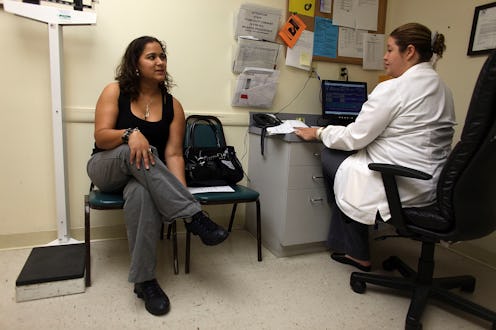News
How Often Should You Get a Pelvic Exam?

Have you been receiving an annual pelvic exam every year since you were 18, like me? Though it's no root canal or bone marrow transplant, pelvic exams are hardly comfortable or pleasant. Moreover, getting an appointment for your exam in the first place (and paying for it) can be quite the hassle. So, you will be partially comforted and partially annoyed to learn that science confirms what we already suspected: for many women, routine pelvic exams do more harm than good.
A meta-study conducted by the American College of Physicians and recently published in the Annals of Internal Medicine reviewed pre-existing evidence regarding pelvic exams from 1946 to 2014. Considered in its totality, the evidence does not support providing the exams as a blanket public health policy:
Routine pelvic examination has not been shown to benefit asymptomatic, average risk, non-pregnant women. It rarely detects important disease and does not reduce mortality and is associated with discomfort for many women, false positive and negative examinations, and extra cost.
Notice that "pelvic exam" only refers to the part of a gynecological visit when the provider examines your pelvic organs visually, and by lubing up and feeling them. From your end, this part of the exam feels like getting groped and prodded in your stomach, ovaries, vulva, and possibly rectum. You still need to get regular Pap smears, during which a provider swabs your cervix for sample cells, because those test for asymptomatic cervical cancer in a way that isn't possible with just a pelvic examination. But Pap smear guidelines were recently revised too, to once every three years for most healthy women.
I, for one, definitely hope that this academic finding has an impact on doctors' practices, and soon. Until the pill obtains rightful over-the-counter status, you may have to push back on your health care providers to reduce the amount of needless medical procedures they insist on doing to you. But science and, in some cases, the providers' own policies are on your side. Insist on getting the care you need, and effectively refusing the care you don't, including routine, annoying, uncomfortable, unhelpful annual pelvic exams.